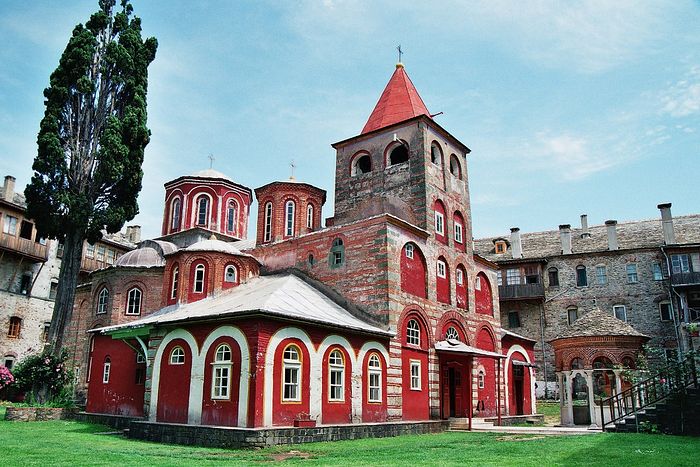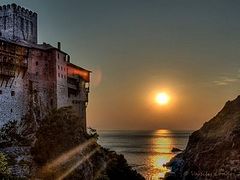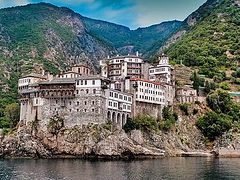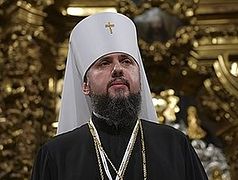Mt. Athos, January 30, 2019
If “Metropolitan” Epiphany Dumenko, the primate of the Ukrainian schismatic church, visits Mt. Athos, as he hopes to do, some of the Greek monasteries will close their gates to him.
Sergei Shumilo, the director of the International Institute of the Athonite Legacy in Ukraine, has reported on the issue from Mt. Athos, noting that the Church situation in Ukraine has caused some controversy on the Holy Mountain, though it has not led to any kind of schism or division.
However, certain Greek monasteries, including Philotheou and Karakallou, have said that they will close their gates to Epiphany Dumenko if he comes to Mt. Athos. Both of the mentioned monasteries are under the spiritual direction of Elder Ephraim who lives at St. Anthony’s Monastery in Florence, Arizona.
As reported yesterday, the Sacred Community of Mt. Athos voted not to send an official delegation to Epiphany’s enthronement as primate on February 3 in Kiev. While information from the Greek site Romfea indicated that 13 monasteries voted against sending a delegation and 7 in favor or it, Shumilo clarifies that only 5 voted in favor: Iveron, Stavronikita, Xenophontos, Koutloumousiou, and Pantocrator. He also notes that various sources indicate that no representative from the Great Lavra, Simenopetra, or Dochariou was at the meeting.
While no official delegation representing Mt. Athos will be present at the enthronement, Romfea reports that the abbots of two monasteries will be present as members of Patriarch Bartholomew’s delegation, though which monasteries is not specified.
Documents published by the Greek site orthodoxia.info clarify that the request for an Athonite delegation came from Epiphany Dumenko himself (not directly from Patriarch Bartholomew) with the blessing of Pat. Bartholomew and was forwarded to the Holy Mountain from Constantinople.
The site also contends that the Sacred Community decided not to send a delegation because the Holy Mountain’s practice is to only send a delegation to the enthronement of Patriarchs of Constantinople, though this is not stated in the documents published.
Meanwhile, representatives from various monasteries, both Greek and Slavic, say they recognize only His Beatitude Metropolitan Onuphry of Kiev and All Ukraine as the canonical primate of the Ukrainian Orthodox Church, whom they have known for a long time, according to Shumilo.
Those who do not support the initiative of the Patriarch of Constantinople explain their position by the fact that the tomos of autocephaly was not granted to the fullness of the Ukrainian Church, but only to a smaller, schismatic group. There were also suggestions to bring the issue to a pan-Orthodox discussion of the primates of the Local Orthodox Churches.
As a result, Shumilo writes, the Sacred Community of Mt. Athos resolved not to send an official delegation and not to congratulate Dumenko on his election and enthronement as primate, and in the future to refrain from supporting the parties in the Church conflict in Ukraine.
In general, the Community decided not to interfere in the process, but to go deep into prayer for Ukraine and wait for the primates of the Local Churches to solve the issue.
While that is the official position of the community, made up of representatives from the ruling monasteries, the situation in the kelli and with the hermits is much more complicated, Shumilo writes, with some of them having ceased commemoration of Patriarch Bartholomew during the Divine services and others holding neutral positions.
Follow us on Facebook!




